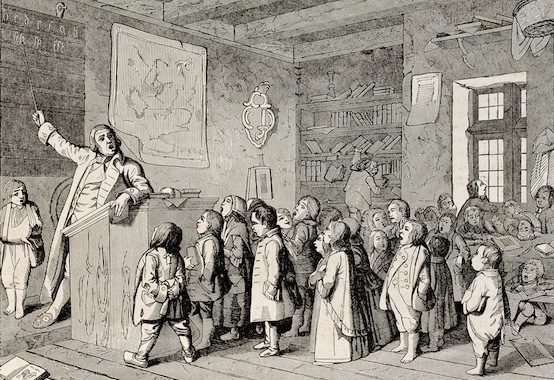When Schools Appropriate Religious Education

In one region of Germany, Muslim students can now be taught their faith in state-run schools, just as Catholic and Protestant students are. Germany has a tradition of teaching religion not just as history, but as a system of ethics, starting as early as first grade.
According to the New York Times, the courses are intended to salve concerns about exclusion and to try to influence their assimilation in the style of Henry Ford’s English School:
By offering young Muslims a basic introduction to Islam as early as first grade, emphasizing its teachings on tolerance and acceptance, the authorities hope to inoculate young people against more extreme religious views while also signaling state acceptance of their faith.
After another holiday season filled with lawsuits and news stories about the place of Christmas in public schools and in government business, Germany’s Islam classes might be a cautionary tale for religious conservatives who want to see their faith more closely woven into state education.
When running classes in Islam, generally, the German schools run into the same conflicts that must come up when they give students classes in generic Protestantism. Already, in one community, a group of Sunni parents are trying to keep members of the Ahmadiyya reformist sect from influencing the curriculum. When schools teach religion as a matter of ethics, not history, school administrators must either run ecumenical councils or, more likely, just set a curriculum more in line with the school’s goals than the faith’s.
What would a Christian ethics course in this mode look like? Perhaps the story of the loaves and fishes would be retold, as has become popular, as a miracle of sharing. After all, that’s a salutary lesson for first graders!
The separation between church and state is there for the protection of both institutions. The state has enormous power to shape culture, and it’s natural for religious communities to want that power deployed molding the culture in their own image.
But the state’s power will serve the state’s ends. So state-sponsored religious education will still, ultimately, be designed to raise good citizens, not good Christians. The two categories aren’t mutually exclusive, of course, but if muddled together in an attempt to gain advantage in the culture war, it will be a lot harder for a religious tradition to untangle its identity should another Becket moment ever arrive.
Comments